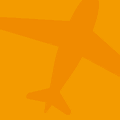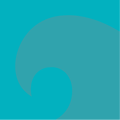The companies setting out on the road to export

Whether through export, international development, a roll-out to the Spanish market and so on, start-ups based at the Technopole Pays Basque sites have been making their mark through their ability to sell their goods or services abroad. This is particularly the case for MaxSea, Wave Bumper or Wikicampers.
“Export activities are our lifeblood - it represents 90% of our turnover! Here at MaxSea, products come in 15 different languages.” Thierry Gandilhon is the Operations Director at MaxSea, a global benchmark in software publication for navigation, maritime surveillance and mapping. Established in 1985 by Brice Pryszo, the company based in Bidart on the Izarbel technology park naturally expanded its business very early on towards the oceans with the help of the greatest ocean racing skippers. Today, some 100,000 users now use its recreational boating solutions. It was then time to pursue the fishing market. With that in mind, in 2005, MaxSea forged a technical alliance with another giant in the sector – the Japanese company Furuno, a global leader in electronic navigation that was looking for high-performance software solutions. “We then set up shop in the USA where we bought out our main competitor and merged our two brands,” Gandilhon added. “We now have almost all of the European professional fishing market share, which is our primary target.”
Operations in Bidart, Barcelona and Portland
At the same time, MaxSea also exported its mapping know-how. The solutions on offer by the Basque start-up now equip the Portuguese Navy to monitor all its coasts, its Filipino counterpart to monitor sensitive areas at risk of piracy, the US Coastguard in the north east of the country, and even fish farms in Chile to monitor salmon farms.
In addition to its online store, the software publisher has distributors around the world and employs more than 80 people on its sites: Bidart (headquarters), Barcelona and Portland (in the US state of Oregon).
Wave Bumper, another Basque company for which the oceans present a vast area of study, has very much been in the spotlight since its creation. In autumn 2017, when the Basque Country was once again hit by storms and threatened by wave overwash, the young start-up deployed its removable dike system in front of the Biarritz casino. The building was protected, and Wave Bumper’s reputation secured. “Using removable systems to protect coastlines instead of concrete is a brand-new concept,” Romain Chapron, founder and CEO of the start-up based at the Bayonne Technocité technology park, stated. “We are facing a universal environmental problem. We provide a different piece of the solution to a problem that exists wherever there is water.”
Removable dikes in New York
In 2018, Wave Bumper exported its expertise to the Caribbean islands ravaged by the recent passage of Hurricane Irma. Hotel architects in St Barths sought the company’s know-how to (re)build buildings better equipped to weather new devastating weather phenomena. It was then Spain’s turn to contact the start-up in Bayonne. It needed better defences for the Getaria port and the Repsol oil group installations at Ondarroa in the Basque Country and to protect beaches in the communities of Valencia and Cantabria.
More recently, even the US Army signed a contract with Wave Bumper. The US Army Corps of Engineers, which is responsible for coastline protection, used Wave Bumper’s latest generation removable dikes to protect a neighbourhood in New York. “We obtained a sizeable subsidy from the Nouvelle-Aquitaine region to help us expand internationally,” Chapron continued. “We are therefore going to create a subsidiary in the United States because under federal legislation, we must produce within the country. However, our tools will continue to be produced in the Basque Country.”
A Blue Ocean Awards winner in 2018, Wave Bumper has eight employees and a dozen or so contributors. It is now preparing a major fundraising campaign to continue its international development, particularly in Africa.
First stop: Spain
Another Technopole Pays Basque start-up based at the Izarbel site has chosen to cross the Pyrenees mountains to start its international operations. Wikicampers, an online platform and mobile app specialised in van and camper van rentals between individuals, is venturing into the Spanish market. “The aim is to allow anyone with a kitted-out vehicle in Spain to be able to rent it out in a secure manner on our platform,” its founder Marion Woirhaye explained. “The French love to travel in Spain, Spaniards too are very fond of this type of holiday. Spain is the first stop which I hope will continue with the launch of other destinations in Europe. We aspire to being the go-to for nomad travel in Europe, whether to hire or buy vans or camper vans, find travel itineraries or obtain practical information about environmentally-friendly nomadic travel.” The entrepreneur has the support of the CCI International Nouvelle-Aquitaine and Team France Export (as well as others) in this initiative. “We have fully assessed the situation,” she stated. “We had to address issues related to insurance, securing all transactions and recruiting the bilingual French-Spanish team we needed.” The Bidart start-up, which already employs 25 workers, is banking on the desire to get away from it all intensified by the pandemic.
Mechanisms for expansion into international markets
Our region boasts so many of these schemes! From the Izarbel technology park, French Tech Pays Basque is the local ambassador for French technology and innovation alongside the Technopole Pays Basque. As an accredited member of the ‘Communauté French Tech’ since last year, it has a network of 108 communities, 63 of which are abroad, to put entrepreneurs into contact with one another. They are true gateways to respond to the questions companies have before an international launch (questions about markets, legal and tax aspects, etc.).
The French Tech Pays Basque can then direct these companies to the CCI International Nouvelle-Aquitaine, the local point of contact for the Team France Export brand, a dedicated one-stop centre and toolkit for international operations. Team France Export relies on the local intermediaries in Business France offices abroad to find buyers, distributors, partners and so on.
Created in 2017 by the Nouvelle-Aquitaine region, Sirena Start-Up is an internationalisation programme for start-ups that is co-financed and managed by the nine technopoles in our region, including the Technopole Pays Basque. It offers webinars that present countries or areas in which entrepreneurs may find international development opportunities and opens up channels with other countries and start-up incubators/advisors abroad (Spain, Quebec, Japan, South Africa, Germany, United Kingdom, etc.).
For further practical information:
SIRENA Start-Up programme co-funded and managed by the nine technopoles in Nouvelle Aquitaine, including the Technopole Pays Basque: https://www.sirenastartup.com/
La French Tech: https://lafrenchtech.com/fr/ - https://www.frenchtech-paysbasque.com/
Team France Export: https://www.teamfrance-export.fr/nouvelle-aquitaine



 Izarbel
Izarbel Technocité
Technocité Arkinova
Arkinova ID Ocean
ID Ocean


